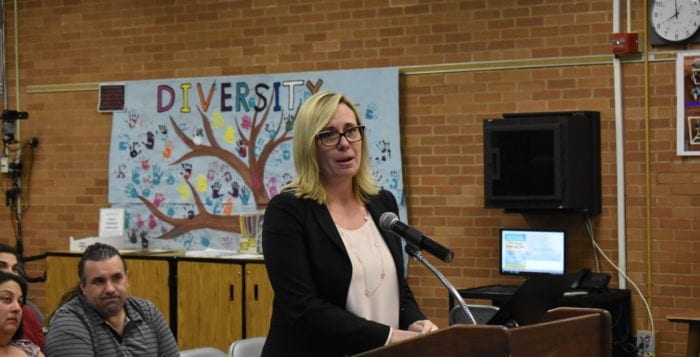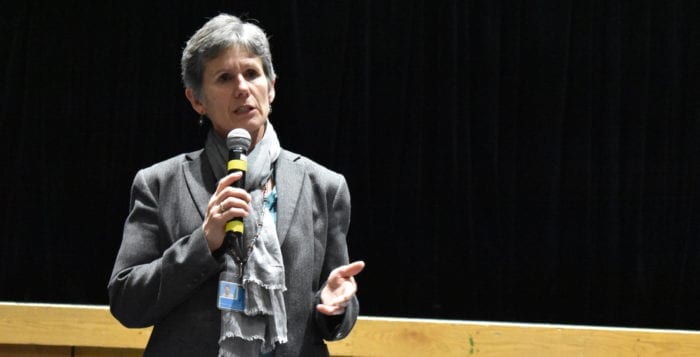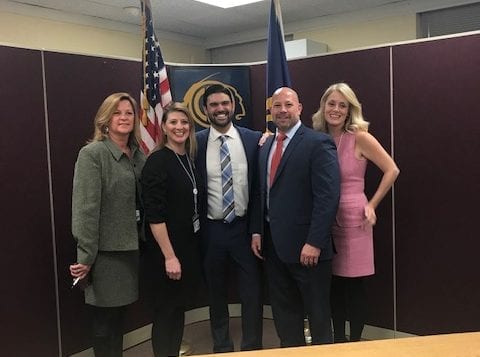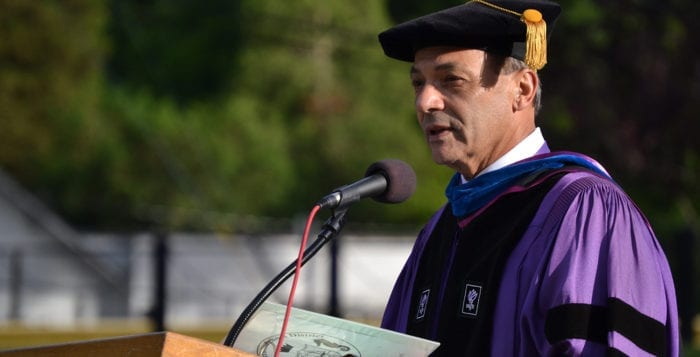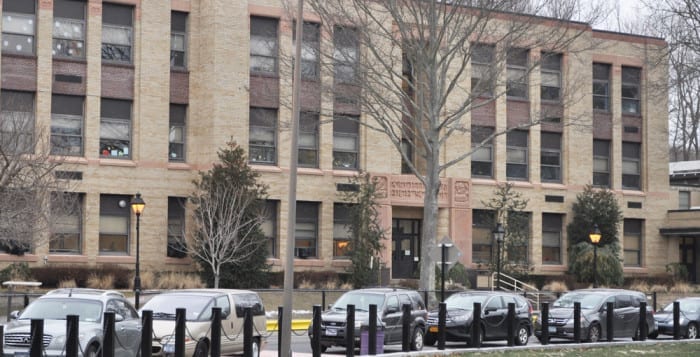A beloved superintendent will be retiring from Miller Place school district, effective June 2022.
Marianne Cartisano said that the retirement has been in the works for years so she can focus on the next chapter in her life.
“I’m going to sleep,” she joked. “I’ve been in administration for the entire 31 years of my career. So, it’ll be the first time probably, since I’m about 16 — even when having my children — that I will have an extended period of time just to do an appropriate decompression.”
She plans on spending time with her family, and will continue to mentor.
“I had spoken to the board a couple of years ago when we were planning a succession plan for Miller Place,” she added. “Mr. Lipshie has been my right-hand person for 10 years so that has made the transition a little bit easier.”
Deputy Superintendent Seth Lipshie will be taking on the role of superintendent of schools
“I’m super excited, I’m motivated,” he said. “It’s an opportunity for me to continue my service in Miller Place.”
Lipshie said he is in his 32nd year in the district and he’s done a bit of everything while working there. From 1990 to 2001, he was a social studies teacher and in 2001 he became assistant principal at North Country Road Middle School. From 2002 to 2010 he served as principal of Miller Place High School before being appointed as assistant superintendent in 2010 and deputy superintendent in 2014.

“I’ve either hired or interviewed almost probably a good majority of the staff that now works in the workplace,” he said. “One of the things I think that I’ll bring to the table is some stability, something familiar.”
By having all this experience, Lipshie said that he has developed “some very strong ties with staff and the unions in terms of making sure that we can serve the students as best we can without any issues.”
He has also been adviser for the AV Club as well as spearheaded the Mock Trial Club. He coached soccer at both the middle school and the high school, was the varsity basketball coach for nine years and has been an umpire for high school baseball for the last 17 years.
Cartisano said that promoting Lipshie to the role of superintendent was a no-brainer — it was important to keep things consistent.
“Having been here now 10 years, that’s a long stretch of the superintendency, especially with the last two COVID years,” she said. “It’s been so rewarding, and the work is so purposeful and meaningful — it just has been a great run.”
But Cartisano said that Lipshie is not a carbon copy of her.
“It’s a marriage made by workplace, and we probably agree on 85% of the time,” she said. “The other 15% we don’t, and that has allowed this district to move forward because we don’t have one mindset, we have different perspectives. That’s the way we lead. It’s not that Seth is a mirror image of me nor me of him. That would not be good leadership.”
She added that there is nobody that could have been a better fit.
“This is an organization that has 500 staff members that show up every day and educate our children, we have 2,500 customers who get off buses every single day for us, and it’s important that the school district stays consistent,” Cartisano said. “We’re very excited.”


